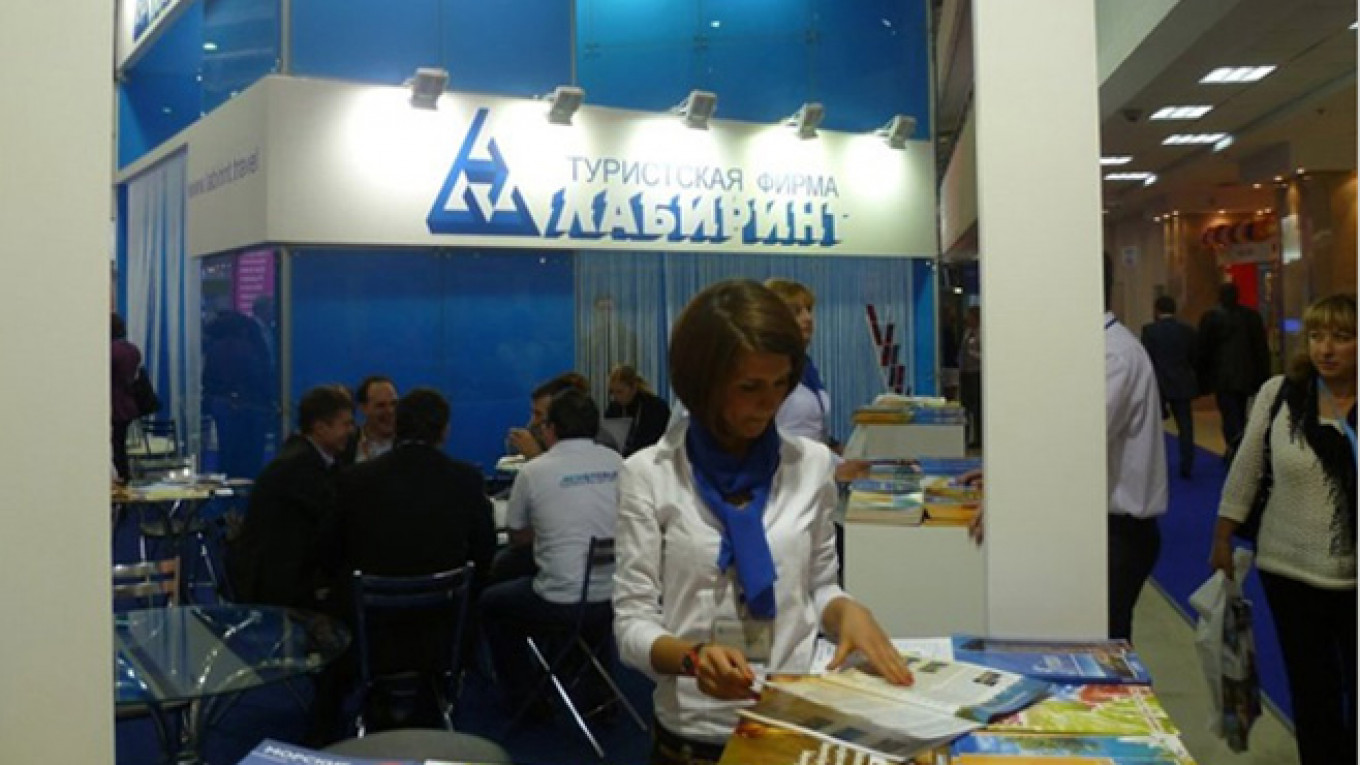The fourth Russian tour operator in just over one month went bust this weekend, said to have been toppled by, among other causes, a drastic slump in demand after the government recommended that security and law enforcement officers do not travel abroad.
This stricture, together with geopolitical tensions over Ukraine, an economic slump and a fast-weakening ruble, has resulted in a 20 to 50 percent decline in the flow of Russian tourists abroad compared to last year, depending on the destination, said Irina Tyurina, a spokeswoman for Russia's Tourism Industry Union, citing industry estimates.
On Monday, the tourism industry's troubles had drawn the attention of Prime Minister Dmitry Medvedev, who ordered his deputy Dmitry Kozak to take the situation under personal control.
"This is some kind of a breakdown, I do not remember anything like this happening before," Medvedev said, commenting on the state of affairs in the industry, the RBC news agency reported.
In July, Neva, one of Russia's oldest tour agencies, declared it was unable to meet its obligations, resulting in the abrupt cancellation of more than 6,000 active tours abroad. Two smaller companies halted operations at the end of July. And on Saturday, the biggest yet, tour operator Labyrinth, said it was suspending operations, leaving an estimated 25,000 customers stranded overseas.
Labyrinth said in a statement that the reasons for its shutdown included the falling value of the ruble against foreign currencies, and an overall negative political and economic situation. The ruble has fallen by 9 percent against the dollar since the start of the year, and by 7 percent against the euro, while the economy fights to avoid slipping into recession.
Labyrinth also blamed the recommended ban on travel abroad by employees of the state's law and order apparatus, such as prosecutors, police, tax enforcers and military personnel — called in the vernacular siloviki, or strongmen.
In April, amid the mounting standoff between Russia and the West over Ukraine, Russian media reported that the government had strongly recommended these state employees to reconsider traveling abroad due to the political uncertainty.
"As a result, they began to back out of their tours," Tyurina said. "Tourist companies realized how many customers from state agencies they had, and it became a serious issue."
Prior to Neva's bankruptcy, the company's president Maxim Pirogov told news agencies the tour operator's revenues had fallen sharply because of the ban.
"Over the first half of the year our revenues slumped 25 percent, among other reasons due to the regulation put on state employees traveling abroad," Pirogov told news agency RIA Novosti.
There are no exact figures, but the combined force of Interior Ministry staff and other enforcement agencies is estimated at 4 million people. This is 3 percent of the country's population, and nearly 5 percent of its working age population. According to the State Statistics Service, on average about 10 percent of Russian citizens travel abroad on a regular basis.
However, Tyurina said the ban was only significant for Neva, which was initially set up by a former silovik and drew many of its customers from the state rolls.
"Overall, an array of factors have contributed to the decline in the flow of tourists from Russia abroad," she said. "Besides the weakening ruble and the sluggish economy it was the global political situation. Many Russians decided against going abroad and chose not to send their children to summer camps there for fear that they would be persecuted because of nationality," Tyurina said. "The state employees ban was just the straw that broke the camel's back," she added.
Vadim Prasov, vice president of the Federation of Restaurateurs and Hoteliers, agreed that a number of factors were straining the Russian tourism industry.
"First, there is mismanagement on part of one company and fraudulent schemes on part of the other. Second comes the overall decline of demand for the trips abroad," he said.
On Monday, the Investigative Committee said in a statement it would look into the business of Neva and Labyrinth to check whether there was evidence of attempted fraud leading to cancellations of tours that people had paid for. The committee said it would check other tour operators who filed for bankruptcy as well.
Russians commonly turn to tour operators because they offer cheaper holidays. Tourist companies book hotel rooms in bulk and whole charter flights well in advance.
"But now there is a wide array of online services that offer similar prices … so tourists are more inclined to turn away from tour operators to buy airline tickets and book hotels themselves," Prasov said. "They are also becoming tired of routine guided tours," he added.
See also:
Tour Agency Bankruptcy Leaves 25,000 Russians Stranded Overseas
Contact the author at a.panin@imedia.ru
A Message from The Moscow Times:
Dear readers,
We are facing unprecedented challenges. Russia's Prosecutor General's Office has designated The Moscow Times as an "undesirable" organization, criminalizing our work and putting our staff at risk of prosecution. This follows our earlier unjust labeling as a "foreign agent."
These actions are direct attempts to silence independent journalism in Russia. The authorities claim our work "discredits the decisions of the Russian leadership." We see things differently: we strive to provide accurate, unbiased reporting on Russia.
We, the journalists of The Moscow Times, refuse to be silenced. But to continue our work, we need your help.
Your support, no matter how small, makes a world of difference. If you can, please support us monthly starting from just $2. It's quick to set up, and every contribution makes a significant impact.
By supporting The Moscow Times, you're defending open, independent journalism in the face of repression. Thank you for standing with us.
Remind me later.






